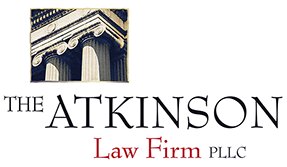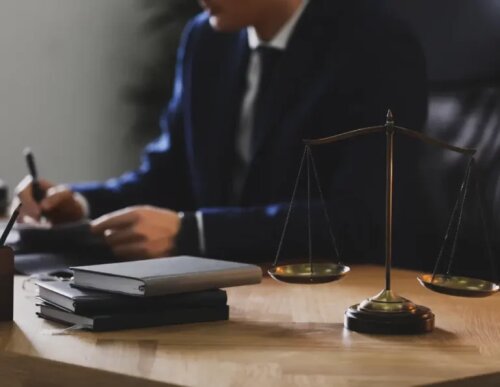Best Motor Vehicle Defect Lawyers in North Carolina
Share your needs with us, get contacted by law firms.
Free. Takes 2 min.
Or refine your search by selecting a city:
List of the best lawyers in North Carolina, United States
About Motor Vehicle Defect Law in North Carolina, United States
Motor vehicle defect law in North Carolina involves regulations and legal principles that protect consumers and motorists from harm caused by dangerous or faulty vehicles or vehicle components. Defects may arise from design flaws, manufacturing errors, or failures to warn about vehicle risks. These defects can lead to accidents, injuries, property damage, or even fatalities. The law provides avenues for individuals to seek compensation from manufacturers, sellers, or other responsible parties when a motor vehicle defect has caused harm or loss.
Why You May Need a Lawyer
Legal assistance is often essential if you have been affected by a motor vehicle defect. Common situations where you may require a lawyer include:
- Injury or harm caused by defective vehicle parts, such as brakes or airbags
- Being involved in an accident where a defect in your own or another party's vehicle may have contributed
- Disputes with manufacturers or dealerships regarding recalls or necessary repairs
- Denial of warranty claims requiring repair or replacement of defective components
- Pursuing compensation through a personal injury claim or product liability lawsuit
- Joining or starting a class action lawsuit over widespread vehicle defects
- Difficulty getting a vehicle replaced or refunded under North Carolina's Lemon Law
Local Laws Overview
North Carolina law protects consumers against vehicle defects through a combination of state and federal regulations.
- North Carolina has a Lemon Law known as the New Motor Vehicles Warranties Act, which applies to new vehicles. It allows buyers of new cars with serious defects to seek replacement or refunds if the defects cannot be repaired after a reasonable opportunity.
- General product liability law holds vehicle and part manufacturers liable if their defective products cause injury or property damage. You may file a claim based on negligence, breach of warranty, or strict liability.
- Federal laws such as the National Traffic and Motor Vehicle Safety Act require manufacturers to notify owners of recalls and remedy safety defects at no charge.
- The North Carolina Department of Insurance and the Attorney General's Office can help enforce consumer protection laws related to motor vehicle defects.
Frequently Asked Questions
What is considered a motor vehicle defect?
A motor vehicle defect is a flaw or problem in the design, manufacturing, or marketing of a vehicle or its parts that can make the vehicle unsafe for use, leading to increased risk of accident or injury.
What should I do if I suspect my vehicle has a defect?
Stop using the vehicle if it is unsafe, document the issues, check for recalls, contact your dealership or manufacturer, and consider consulting with a lawyer if the defect has caused harm or significant expense.
What are the common types of motor vehicle defects?
Common defects include faulty brakes, airbags, tires, steering systems, electrical components, fuel systems, and software-related issues. Defective seatbelts or child safety seats are also frequent concerns.
Who can be held liable for motor vehicle defects?
Manufacturers, parts suppliers, designers, and sometimes dealerships can be held responsible, depending on the nature and origin of the defect.
How long do I have to file a claim in North Carolina?
Generally, you have three years from the date of injury or discovery of the defect to file a product liability or personal injury claim in North Carolina.
What is North Carolina’s Lemon Law and does it apply to used cars?
North Carolina’s Lemon Law applies mostly to new vehicles that develop serious defects early in use. It typically does not cover used vehicles, though warranty claims may still be possible for certain used cars.
What compensation can I recover from a motor vehicle defect claim?
You may recover compensation for medical bills, property damage, lost wages, pain and suffering, and sometimes punitive damages if egregious misconduct is proven. If a Lemon Law claim is successful, you could get a replacement vehicle or refund.
Do I need to participate in a recall to file a lawsuit?
No, you can pursue a product liability claim even if there has not been a formal recall. However, recalls are strong evidence of a defect.
How much does it cost to hire a motor vehicle defect lawyer in North Carolina?
Many lawyers in this field work on a contingency fee basis, meaning you only pay if they recover compensation for you. It is best to confirm fee arrangements during your initial consultation.
Can I join a class action lawsuit for a vehicle defect?
Yes, if a vehicle defect is widespread, you may be eligible to participate in a class action against the manufacturer or other responsible party. A lawyer can advise you on your eligibility and the potential benefits or drawbacks.
Additional Resources
If you need more support or information about motor vehicle defects in North Carolina, consider the following resources:
- North Carolina Department of Justice - Consumer Protection Division
- North Carolina Department of Insurance - Consumer Services
- National Highway Traffic Safety Administration (NHTSA) - Safety recalls and reporting
- North Carolina Department of Transportation
- Local legal aid services for low-income or qualifying residents
- North Carolina Bar Association Lawyer Referral Service for attorney connections
Next Steps
If you believe you have a claim related to a motor vehicle defect in North Carolina:
- Document all issues with your vehicle, including photos, repair records, and communications with dealerships or manufacturers
- Check for active recalls or technical service bulletins relating to your vehicle
- Consult with a qualified attorney who handles vehicle defect or product liability cases in North Carolina
- Gather all paperwork, including purchase agreements, warranty documentation, and insurance records
- Take action as soon as possible due to legal time limits on filing claims
- If safety is at risk, cease using the vehicle and arrange for inspection by a certified mechanic
Lawzana helps you find the best lawyers and law firms in North Carolina through a curated and pre-screened list of qualified legal professionals. Our platform offers rankings and detailed profiles of attorneys and law firms, allowing you to compare based on practice areas, including Motor Vehicle Defect, experience, and client feedback.
Each profile includes a description of the firm's areas of practice, client reviews, team members and partners, year of establishment, spoken languages, office locations, contact information, social media presence, and any published articles or resources. Most firms on our platform speak English and are experienced in both local and international legal matters.
Get a quote from top-rated law firms in North Carolina, United States — quickly, securely, and without unnecessary hassle.
Disclaimer:
The information provided on this page is for general informational purposes only and does not constitute legal advice. While we strive to ensure the accuracy and relevance of the content, legal information may change over time, and interpretations of the law can vary. You should always consult with a qualified legal professional for advice specific to your situation.
We disclaim all liability for actions taken or not taken based on the content of this page. If you believe any information is incorrect or outdated, please contact us, and we will review and update it where appropriate.
Browse motor vehicle defect law firms by city in North Carolina
Refine your search by selecting a city.
















